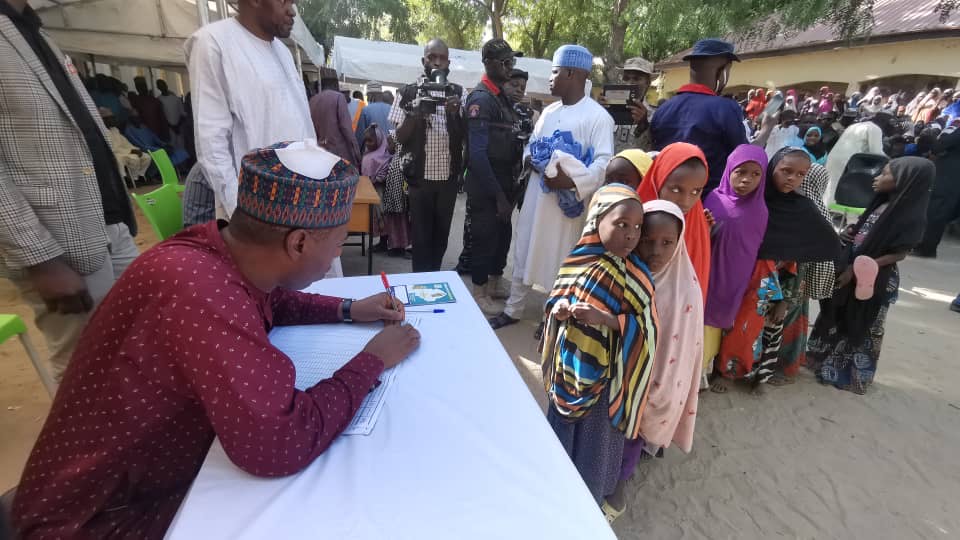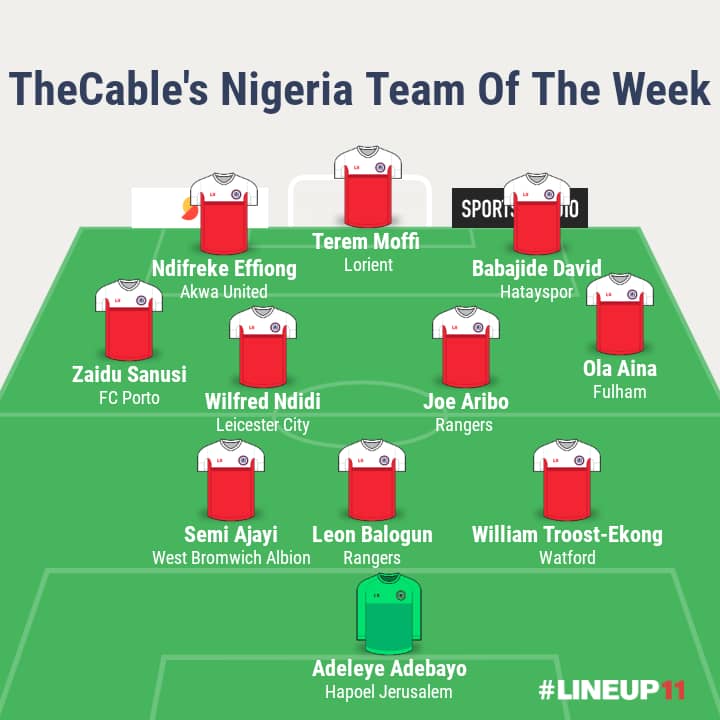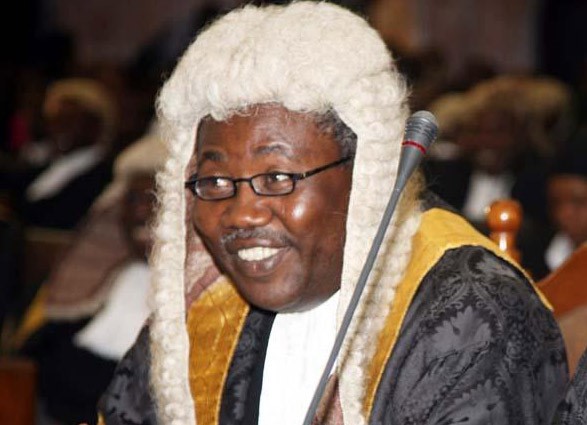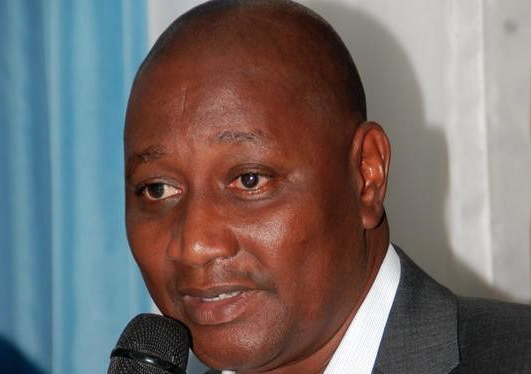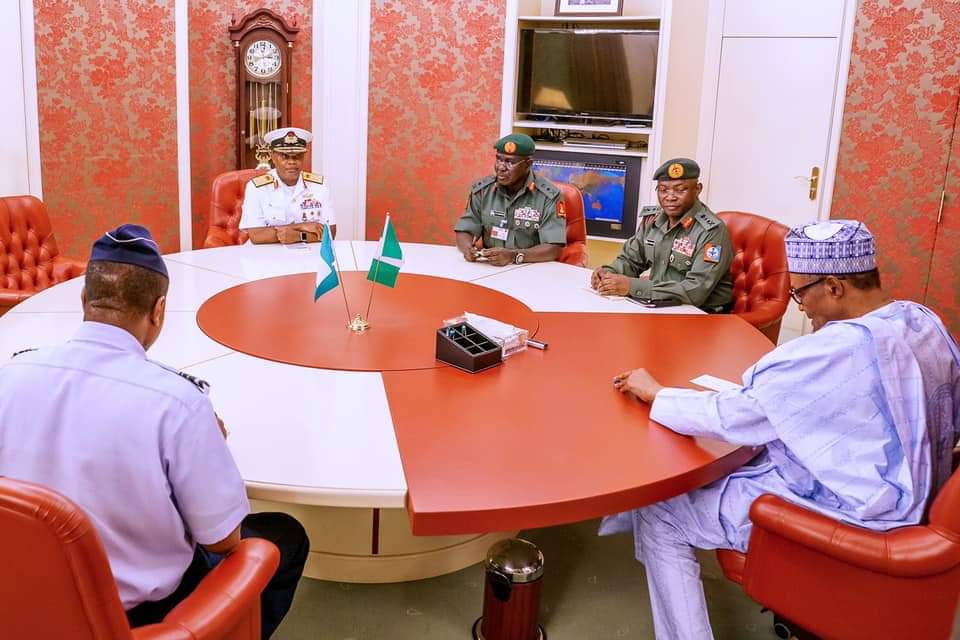Several ministries, departments and agencies (MDAs) of government have continued to violate Nigeria’s financial transparency policy and a presidential directive aimed at promoting accountability.
In December 2019, President Muhammadu Buhari launched the open treasury portal (OTP), an accountability platform, which seeks to enable “timely availability of financial information to the civil society organisations and the public at large by all MDAs of the federal government”.
Speaking at the launch, Buhari, represented by Tayo Alasoadura, minister of state for Niger Delta affairs, said Ahmed Idris, accountant-general of the federation, is expected to publish monthly fiscal accounts that will detail all the financial performance of the government, along with receipts. He directed that a daily treasury statement which will provide information about what came into the national purse and what went out every single day must be published.
Buhari said Idris and all accounting officers must publish daily reports of their spending in the region of N10 million while all ministries, departments and agencies of government must do the same for payments above N5 million made from the public treasury.
Advertisement
“The accountant-general of the federation (AGF) must publish a daily treasury statement which will provide information about what came into the national purse and what went out every single day. I repeat every single day. Henceforth, treasury is required to publish this information unfailingly. The AGF and all accounting officers must publish daily payments reports,” he had said.
“With these reports, the treasury will publish payments of at least N10 million while all MDAs must publish payments above N5 million made out of all public funds under their purview. The information to be published must include the MDA responsible, the beneficiary, the purpose and amount of each payment. Accounting officers are responsible for providing answers to any questions from the public relating to transactions completed by entities under their charge.”
But more than a year after the open treasury portal was launched, findings by TheCable revealed a high level of noncompliance with the presidential directive by several MDAs. Public funds are disbursed with ambiguous payment details thereby making it difficult for such funds to be tracked and accounted for. Irregular monthly budget performance report and poor quarterly financial statement by government parastatals were observed, while daily treasury statement and payment reports remain unpublished.
Advertisement
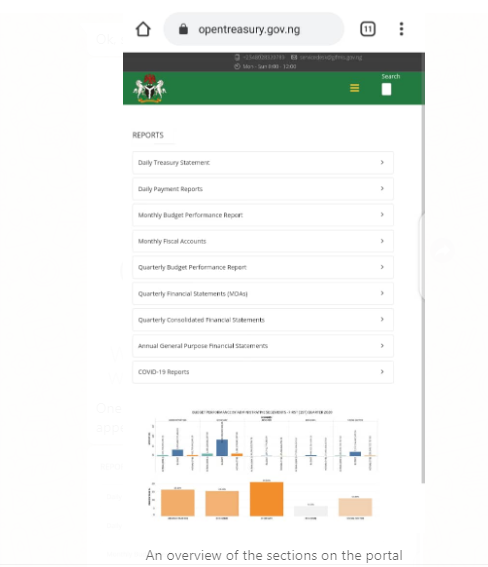
This defiance by MDAs has resulted in the poor achievement of the federal government’s financial transparency policy which seeks to “demonstrate transparency and accountability to the public and its cooperating partners and build trust in government.”
BUHARI’S ANTI-CORRRUPTION CRUSADE AND THE BIRTH OF OTP
At the Tackling Corruption Together conference, which held in London, the United Kingdom in May 2016, Buhari announced Nigeria’s readiness to sign the open government partnership initiative in order to promote accountability, transparency and end corruption.
Advertisement
The partnership was launched in 2011 as a platform for governments to renew commitments to accountability, transparency, and ending corruption in their various countries. A month after the announcement, Buhari signed the open government partnership agreement, bestowing on Nigeria the status of a formal member of the transparency group.
It was not until three years later that Buhari launched the open treasury portal as part of his commitment to the open government partnership agreement. The launch of the portal was commended in several quarters as it was described as a laudable action towards accountability and transparency and a good decision in the fight against corruption and poor access to information.
But after the portal was launched, Nigeria’s ranking on the Transparency International index dropped by two places, ranking 146 out of the 180 countries considered. This raised more questions on the effectiveness of the portal –which Buhari highlighted as one of his achievements— and cast doubt on the anti-corruption efforts made by the incumbent administration.
ONLY A FEW MDAs ENLISTED ON THE OPEN TREASURY PORTAL
Advertisement
The federal government currently has 806 MDAs registered on its Government Integrated Financial Management Information System (GIFMIS) platform, according to Ahmed Idris, the accountant-general of the federation. Based on the financial transparency policy, the presidential directive on OTP “applies to all MDAs including Non-Budget based MDAs and all arms of Government.”
“This policy is aimed at enabling timely availability of financial information to the civil society organizations and the public at large by all MDAs of the Federal Government. Through this initiative, the foundation for a strong partnership against corruption will be laid,” the policy reads.
Advertisement
Despite the high figure of MDAs who utilise public money in funding its operations, only a handful are enlisted on the open treasury portal thereby giving a setback for accountability, transparency and the fight against corruption. Such MDAs, therefore, refuse to publish the monthly budget performance report, payment records, among other financial information as required by the financial transparency policy.
Checks by TheCable on January 5 showed that several ministries and their agencies are not enlisted on the portal while many of those enlisted are yet to have a single publication on monthly budget performance since the launch of the portal. Some ministries yet to be enlisted include ministries of justice; humanitarian affairs, disaster management and social development; works and housing; water resources; power; Niger Delta Affairs; mines and steel development; FCT; and petroleum, headed by Buhari.
Advertisement

Meanwhile, some ministries enlisted on the portal are yet to include several agencies under their supervision. A few of these excluded agencies include the National Mathematical Centre, an agency under the purview of the ministry of education, and the absence of National Social Insurance Trust Fund, an agency under the ministry of labour and employment.
Advertisement
ZERO DATA, POOR PUBLICATIONS AND IRREGULAR UPDATES
A review of the daily treasury statement on the open treasury portal shows nonconformity with the presidential directive. The treasury statement is a publication which is required to summarise inflow and outflow of the nation’s treasury with a breakdown of agencies responsible on a daily basis.
The office of the accountant general of the federation (OAGF) saddled with the responsibility of publishing the daily treasury statements has not complied as required. Despite the approved start date of August 1, 2018, the OAGF only published the daily statement for a few days in the months of October, November, and December in 2018. No publication has been made for 2019 and the just concluded 2020.

Although, the publication of daily payment report by the OAGF has recorded significant compliance since September 2018. For MDAs, no information is provided under the law and justice, as well as regional sections.
TheCable also observed that there is no information on quarterly financial statements by MDAs, and quarterly consolidated financial statement by the federal government. This negates the provision of the transparency policy which states that the unaudited financial statements should be made public “within a month of the end of the quarter”.
Commenting on the portal’s information, Abideen Olasupo, executive director of Brain Builders Youth Development Initiative (BBYDI), a non-governmental organisation involved in promoting good governance, said the portal has vague information with poor descriptions and complex details.
Olasupo added that the Nigerian institutions are weak thereby making compliance with anti-corruption efforts difficult.
“The nature of the portal looks very vague, it is not easy to understand by average citizens. If you run a check between different payments made between January till July, you will see some payments made to personal accounts and payment that are not detailed in terms of description. While the creation of the portal is very good, I think the government needs to work more in making the portal standardised to conform with international standards,” he said.
“The Nigerian institutions are very weak that is why even at the thick of COVID-19, we could see that in contracting and procurement processes, there was a lot of corruption so the Nigerian institutions give room for corruption to take place.”
EFCC, FIRS, NCAA… MDAs FAIL TO PUBLISH MONTHLY BUDGET PERFORMANCE REPORT
According to the policy, all MDAs are to publish monthly budget performance reports within seven days of the end of each month from January 2018. The publication which is a responsibility of both the OAGF and MDAs should detail “performance of the budget by various dimensions including MDAs, functions and economic activities performed by all federal government agencies”.
While the monthly budget performance is grouped into five sections — administration, economic, law and justice, regional, social sector — only three sections are accessible on the portal as there are no information under the “regional” and “law and justice” sections.
TheCable observed zero data imputed by several MDAs on the portal over a year since it was launched. Under the ministry of finance, the Asset Management Corporation of Nigeria (AMCON), Federal Inland Revenue Service (FIRS), National Insurance Commission (NIC), among others have refused to publish a single monthly budget performance report since the launch of the portal.

The situation is same for agencies under the ministry of aviation, such as Federal Airport Authority of Nigeria (FAAN), Nigerian Meteorological Agency, Nigeria Airspace Management Agency (NAMA), and Nigeria College of Aviation Technology. When TheCable contacted Henrietta Yakubu, FAAN spokesman, he did not respond to calls and a text message sent to him.
Similar cases were recorded by the Nigeria Civil Aviation Authority (NCAA) of the ministry of transportation, the Economic and Financial Crimes Commission (EFCC) under the presidency, and the senate, house of representatives, among several others spread across the various ministries and arms of government.
Wilson Uwujaren and Benjamin Kalu, spokespersons for the EFCC and house of representatives respectively did not respond to inquiries on the matter, while Ajibola Bashiru, senate spokesman, directed the reporter to “national assembly bureaucracy”.
QUESTIONABLE PAYMENT RECORDS OVER POOR DETAILS
BudgIT, a civic advocacy group, in its report titled “OpenTreasury.gov.ng: Nigeria’s Spending Platform: Review, Gaps & Recommendations” analysed data uploaded on the open treasury portal from September 2018 to May 2020.
For the analysis, the group said it collated and analysed over 100,000 payment entries from over 600 distinct spreadsheets. It found that between January and July 2019, large sums were paid into personal accounts; including several records with vague descriptions.
“Over 2,900 payments to individuals were recorded at an aggregate value of ₦51 billion. A few examples include, ₦2.04 billion , ₦2.04 billion and ₦1 billion paid into personal accounts on the 21st of June 2019 without any payment description along with another ₦68 million payment for ‘Ogunsuyi’ and ₦15.8 million for ‘international’ on other dates,” the report read.
“In the same 2019, we also discovered payment records without descriptions or beneficiary information. At least 5,000 payment records valued at ₦278 billion were without descriptions and 275 payment records with a value of ₦43 billion were without beneficiary name.
“These inconspicuous payments cannot be assessed or traced by citizens and interested parties, thereby defeating the purpose of the platform to foster transparency.”
Checks by TheCable revealed that such practice still exists as several payments were made with poor details contrary to the transparency policy requirements which states that information on the MDA responsible, the beneficiary, purpose and amount of each payment should be clearly provided.
The payment record of June 30 showed that the federal government on behalf of the Nigerian Defence Academy (NDA) paid over N59.6 million to Afaka Catering Association for an undisclosed purpose. A month after, the ministry of police affairs paid over N66.2 million to Lanre Shittu Motors for unknown reasons.
On August 20, the Federal College of Education, Oyo, also paid N37 million to Oakland Construction Concept LTD, a payment made without a description. On the same day, the office of special adviser to the president on Niger Delta paid N479 million to 11 private accounts as “IRO July 2020 Stipend IFO” for 7,210 delegates in 11 camps. This was amid the ongoing probe of the Niger Delta Development Commission (NCDC), the several corruption allegations and drama which the Niger Delta is associated with at the time.
According to chapter 7, section 713 of Nigeria’s civil service financial regulation, payment of funds into private bank accounts is considered fraudulent.
“Personal money shall in no circumstances be- paid into a government bank account, nor shall any public money be paid into a private bank account. An officer who pays public money into a private account is deemed to have done so with fraudulent intention,” the section reads.
COVID-19: $3.4 BILLION IMF LOAN AND ZERO PUBLICATION OF EXPENSES
As the coronavirus pandemic impacted the economy negatively, Nigeria received a $3.4 billion credit facility from the International Monetary Fund (IMF). The loan, which was disbursed on April 28, 2019, will be paid back over a period of five years with three and a quarter years moratorium.
Prior to the approval of the credit, Nigerian authorities had informed the IMF that the government would “take all the necessary steps to ensure that crisis funding is used for its intended purpose”.
In its report in April, the IMF said Nigerian authorities assured that there will be an independent audit of COVID-19 emergency response expenditures.
“They (Nigerian government) were confident that the audit can be completed expeditiously as this is a special accounting exercise for only a few budget lines, which will be created specifically for these spending and will be posted contemporaneously in the treasury online portal,” the report reads.
The decision to publish expenditures on the approved $3.4 billion on the open treasury portal was also confirmed in a letter dated April 21. The letter co-signed by Godwin Emefiele, governor of the Central Bank of Nigeria (CBN), and Zainab Ahmed, minister of finance, noted that there would be tracking and reporting of emergency response expenditures through monthly publication on the transparency portal.
“We fully recognise the importance of ensuring that financial assistance received is used for intended purposes. To that end, we will create specific budget lines to facilitate the tracking and reporting of emergency response expenditures and report funds released and expenditures incurred monthly on the transparency portal,” the letter reads.
But about nine months after the loan was approved, the Nigerian authorities are yet to provide monthly publication of expenses on the portal. Although the portal has a section on COVID-19 reports, there is no information under the subsections of COVID-19 daily payment report, budget performance report, comprehensive financial report, and daily treasury statement.
When TheCable contacted Osita Nwasinobi, CBN spokesman, he refused to respond to a text sent to him. But Yunusa Abdullahi, special adviser on media and communications to the minister of finance, told TheCable that the OAGF will be in a better position to respond to the matter.
“The open treasury portal is domiciled at the office of the Accountant General of the Federation. So they will be in a better position to help,” he said.
MDAs RESPONSIBLE FOR REPORTS ON OTP — OAGF REACTS
TheCable made multiple attempts to reach the office of the accountant general of the federation (OAGF) which is responsible for the maintenance of the portal, publications of all information generated on both GIFMIS and REMITA platforms, coordination of helpdesk, compliance enforcement, monitoring and reporting.
An FOI was sent to the OAGF on December 14, requesting information on the full list of enlisted MDAs, the status of monthly budget performance report, quarterly financial statements, ambiguous payments, irregular publications, and the $3.4 billion IMF loan.
Reacting in a letter dated January 5, Sabo Mohammed, on behalf of the accountant-general of the federation, said MDAs are responsible for the reports uploaded on the portal. He said the reports are being uploaded on the portal in the current implementation phase, adding that the treasury will “ensure full compliance with the publications threshold as the public financial management reforms are deepened”.
“Reports of these MDA are being published on the Open Treasury Portal in the current phase of implementation,” the letter read.
“Daily Treasury Statements were published in 2019 but could not be uploaded for 2020 due to bank reconciliation challenge experienced in the year. In line with the Financial Transparency Policy Guidelines, MDA are to explain discrepancy with respect to their respective reports. To that effect, Focal Persons have been identified to assist the Help Deck to attend to query from general public.
“To ensure compliance and adherence to the publications guidelines, Quality Assurance/Compliance Committee has been commissioned to monitor quality of reports and compliance accordingly.”
TheCable understands that the committee established to monitor the quality of reports and ensure compliance by MDAs was inaugurated in August 2020. But several months after its inauguration, a violation of the presidential directive and the financial transparency policy by the various MDAs persists.

